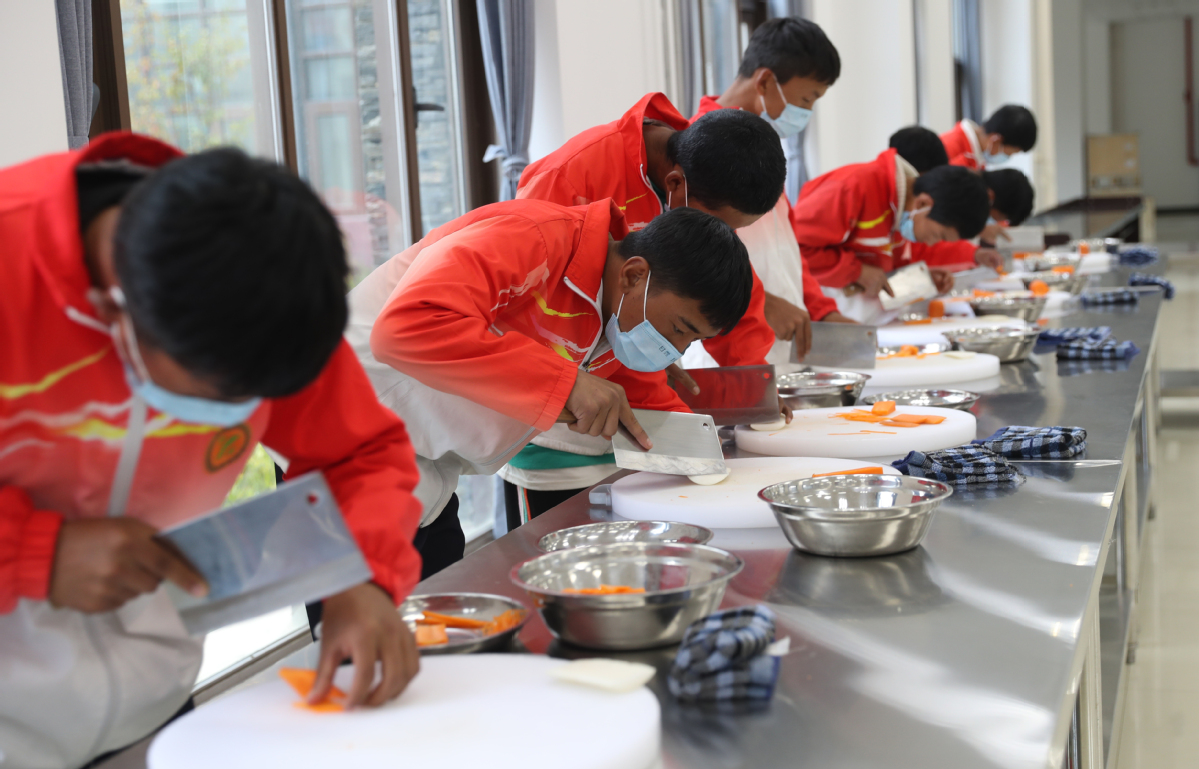Lives improved on wide scale in Tibet


Incomes rise
As part of the region's efforts to lift people out of poverty, vocational schools also provide short-term programs for farmers and herdsmen to master skills such as running a homestay or driving a truck.
Tibet, which used to have the highest poverty rate nationwide, has spent more than any other area of the country on the challenging task of ending impoverishment for its people.
By the end of last year, 628,000 people in the region listed as impoverished had been lifted out of poverty, with their per capita net income rising to 9,328 yuan, up from 1,499 yuan in 2015.
Despite the impact of the coronavirus pandemic, in the first six months of this year, per capita income in rural areas of Tibet rose by 10.2 percent year-on-year.
Qizhala, chairman of the regional government, said rising incomes are mainly due to those who have taken other jobs, instead of relying purely on farming.
He said the short-term vocational programs are aimed at meeting strong demand to learn employment skills, adding that in some areas where grazing yaks and sheep is the major source of income, nearly half the local workforce has been left idle.
"We hope that after they learn new skills, these people are able to find work and earn money. A survey we carried out found that driving is the most sought-after skill among farmers," Qizhala said.
He added that people who used to ride horses to get around are now learning to ride motorcycles.
Other popular skills include electric welding and operating cranes and bulldozers at construction sites, where there is a shortage of such workers, he said.
- Beijing courts boost efforts to resolve livelihood-related cases
- Reminder tips from Weifang police spark buzz on Xiaohongshu
- Former head of national tobacco body stands trial on bribery charges
- China warns DPP's attempt to seek 'Taiwan independence' will be futile
- Consistent progress seen in environmental protection
- Former head of China's State Tobacco Monopoly stands trial for graft, abuse of power





































